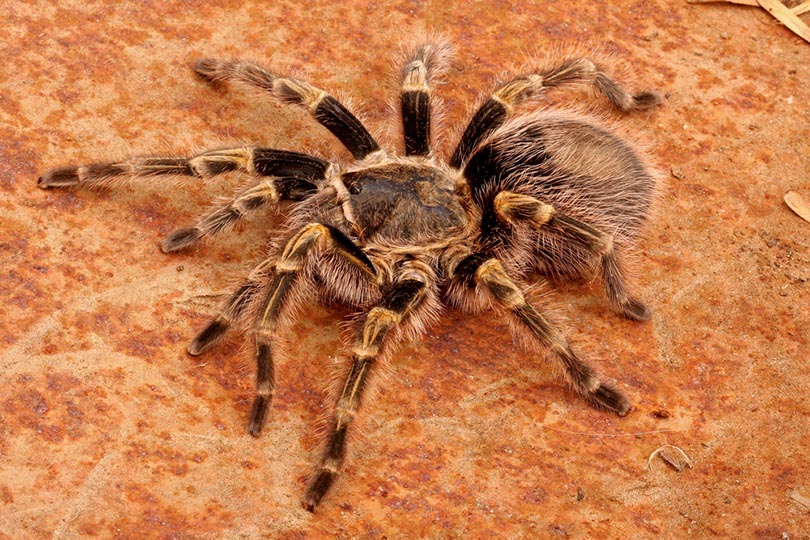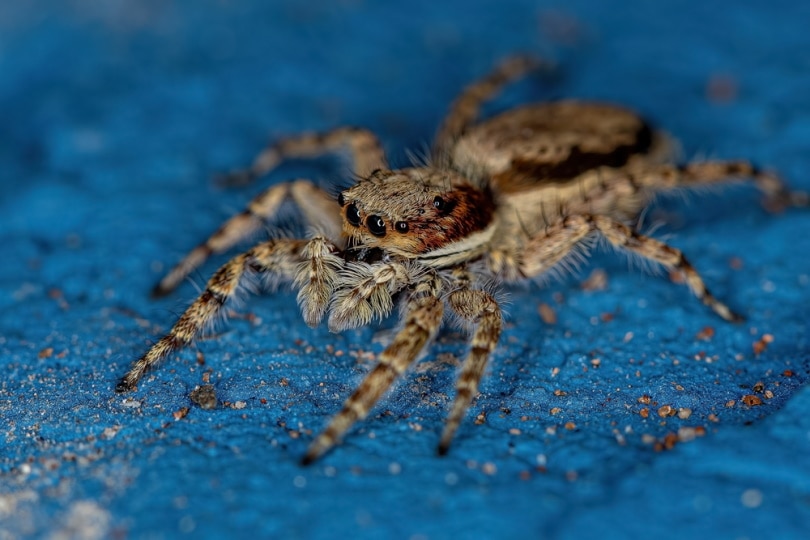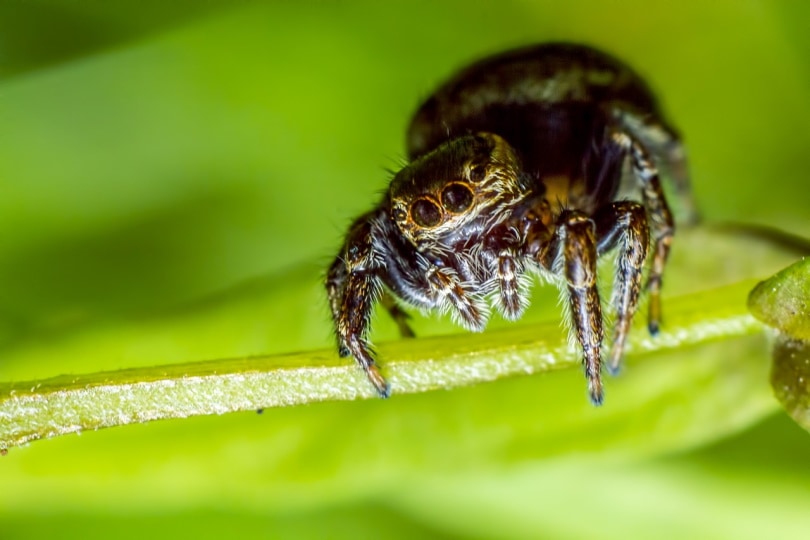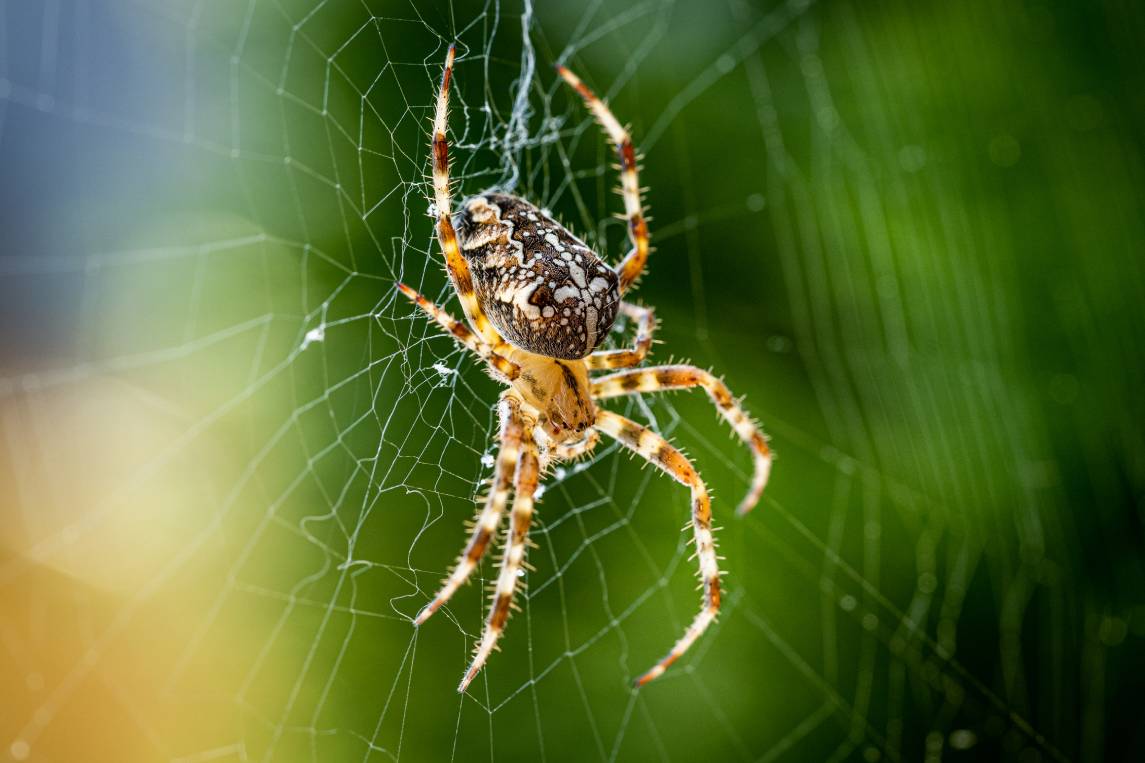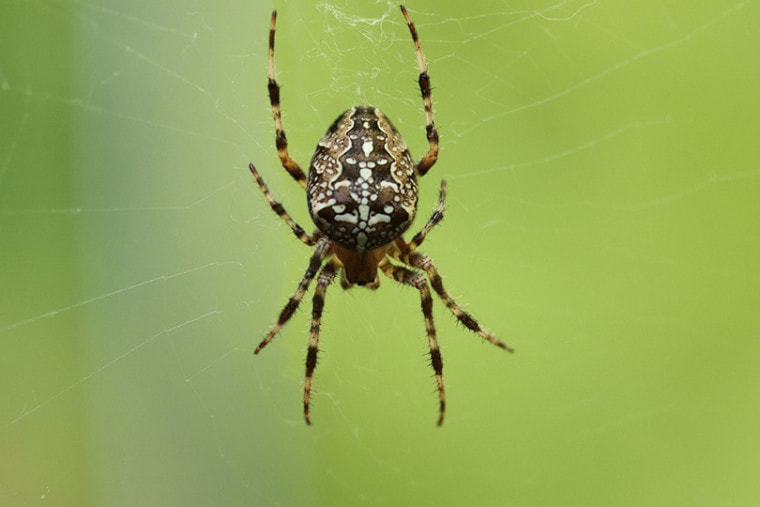
Answering a question about the intelligence of spiders is inherently tricky. Humans don’t interact with them in any meaningful way. Instead, we scorn them. They’re more likely to end up on the bottom of our shoes than anyplace else. Nevertheless, the fact that they have existed for almost 400 million years and have evolved into nearly 50,000 species says a lot about their ability to adapt and survive.
However, that’s not the same thing as saying spiders are smart. Instincts could easily explain those figures. Intelligence involves several more complex skills and cognitive abilities, such as problem-solving, tool use, and concept formation. An organism must have the equipment, i.e., brain structure, to carry out these tasks. Where does that leave spiders? Scientists found out, that some species possess problem-solving abilities. Read on!
Intelligence and Survival

Surprisingly, researchers have taken up this challenge to answer this question. It turns out that these arachnids have some decision-making ability, according to a study on Portia, a genus of jumping spiders. Scientists found that they use some rudimentary form of intelligence to navigate their world by avoiding undesirable areas and being able to stalk their prey.
Of course, the main thing we associate with spiders is their webs. You’ve probably have heard that their silk is as strong as steel. Research has confirmed that it’s indeed true. It’s a case where the sum of the parts, or nanostrands, matters. It’s this matrix that gives webs their strength. One could then argue that spiders must be intelligent to keep track of everything. After all, humans haven’t recreated it.
The other premise for intelligence lies with Haller’s rule. This theory states that small organisms with little brains will have a greater ratio of brain to body mass. In other words, the size constraint forces optimal use of the space. Even though some spiders are tiny, evolution has made the best of it.
One could say that it’s simply a case of niche-specific adaptations and not true intelligence at work when it comes to web-building or any other so-called skills we see in spiders. However, the question becomes whether spiders can learn from their experiences and modify their behavior as a result.
Pre-Planning in Spiders
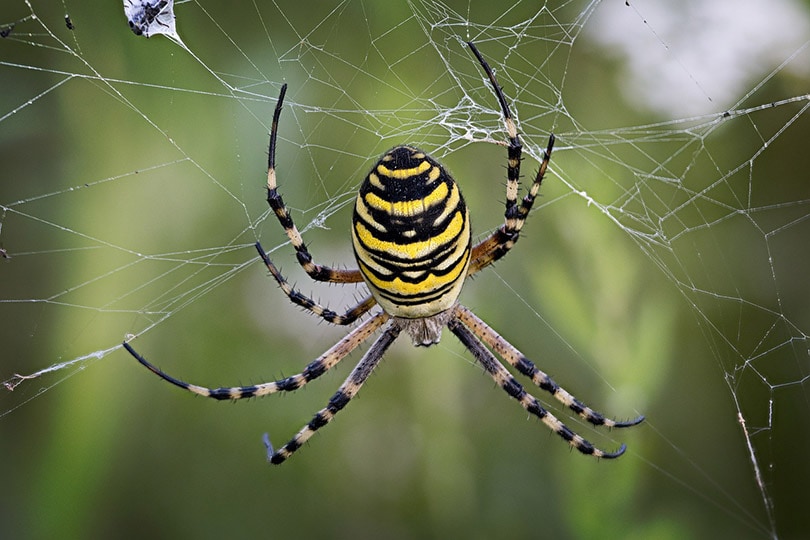
Again, we turn toward research on the genus Portia to make our case for spider intelligence. One of the classic ways of categorizing it in non-humans is through the work of D.C. Dennett. Dennett proposed four creatures to describe a continuum of intellect as evidenced by problem-solving. Humans are at the top as Gregorian Creatures, capable of thinking and discussing plans.
Popperian Creatures can plan ahead to solve problems. Skinnerian Creature shoot from the hip and act in the moment. Darwinian Creatures rely on insects. Cross et al. make a strong case that jumping spiders are Popperian Creatures because they act in a way that ensures they get their desired prey.
The researchers recount observations of these arachnids creating detours to lure prey species of spiders. The experiments didn’t involve learning or prior experience. Instead, the jumping spiders had to see a situation and then come up with a solution. Interestingly, they also had a longer response time than what other scientists have observed in primates.
The takeaway from these experiments is that jumping spiders provide a compelling case for intelligence. Their abilities to get prey may be innate. However, the solutions they used were not and provided fodder for an argument that these arachnids are smarter than we may think. It also shows that perhaps brain size is relative.
Remember that we would call vertebrates doing these same actions intelligent creatures. The fact that we’re discussing spiders instead is immaterial.

Final Thoughts
Questions of intelligence have focused primarily on vertebrates, such as primates, rodents, and pet animals. However, the research has shown that even what some may think of as lowly creatures like spiders possess problem-solving abilities when faced with new challenges. We may not know if arachnids can learn. But we can say they can respond to changes in their environment to help them survive.
Next on your reading list:
- 7 Spider Myths and Misconceptions – It’s Time to Stop Believing These!
- 10 Spiders Found in Illinois (With Pictures)
Featured Image Credit: Annette Meyer, Pixabay


